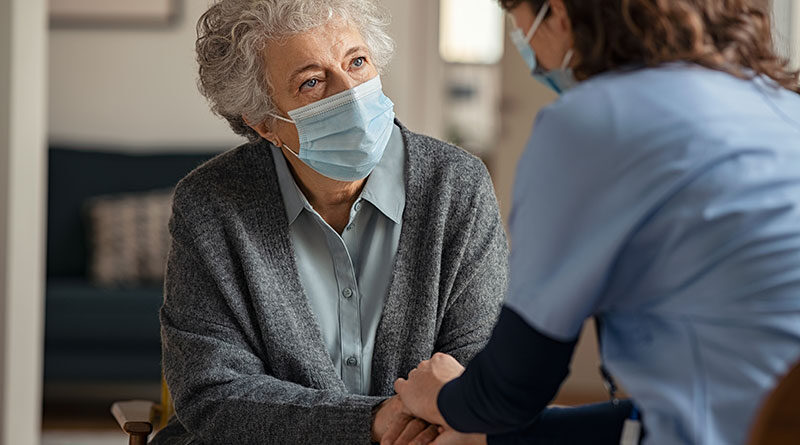Analysis Reveals Older Women “Especially Badly Hit” by the Pandemic
The latest wave of Age UK’s research into the impact of the pandemic on older people has found that older women have been and continue to be more adversely affected than older men. For example, just over a quarter (28%) of older women say their general health has got worse over this period compared to just over a fifth (22%) of older men. This difference is statistically significant in research terms.
The Government has committed to publishing a Women’s Health Strategy this year and Age UK says it is crucial that it recognises and responds to the needs of older women, as well as younger ones. Previous experience suggests documents of this kind often focus almost exclusively on women of child-bearing age. The charity says that the needs of older women must not be overlooked.
The charity says its research finds that COVID and its fall out has led to substantial numbers of older women reporting big adverse changes in their physical and mental health. With so much pressure on our health and care services it also finds that many older women have had to take on new caring responsibilities for loved ones, or provide more support for them because the person’s health has deteriorated over the last two years and their care needs have consequently increased.
Older women are also more likely than men to report being anxious and depressed, and to be struggling to access help from their local GP. We also know that many of the 6 million plus people on NHS waiting lists are older women who are queuing for operations to their knees and hips, cataracts, or for diagnostics.
ONS data show that women have longer life expectancy but shorter healthy life expectancy. This means they spend more of their lives in poor health than men, making access to health care tremendously important for them.
To help address this inequality Age UK is calling for the Government’s forthcoming Women’s Health Strategy to ensure NHS staff are properly trained in the issues affecting older women, including the menopause; that health and care data are disaggregated by sex and that future trials include older women, to improve knowledge about their needs; and to communicate more effectively that the NHS does care about older women, for example by publicising the fact that they can request to continue breast screening after the age of 70 if they wish.
Age UK’s most recent research found that significant numbers of older women are not recovering well from the effects of the pandemic, with:
• 2,978,000 (35%) older women feeling more anxious since the start of the pandemic compared with older men at 1,571,000 (20%).
• 2,298,000 (27%) older women saying they are in more physical pain since the start of pandemic compared with 1,492,000 (19%) older men.
• 2,383,000 (28%) older women saying their general health has got worse compared with 1,728,000 (22%) older men.
• 1,362,000 (16%) older women saying they are less independent compared with 864,000 (11%) older men.
And instead of older women feeling well supported by the health system at a time when it is most needed:
• 3,744,000 (44%) older women expressed concerns about having access to GPs compared with 2,592,000 (33%) older men.
• 2,723,000 (32%) older women said they were concerned about having access to hospital appointments compared with 1,885,000 (24%) older men.
• 2,893,000 (34%) older women had concerns about having access to A&E compared with 2,042,000 (26%) older men.
• 1,617,000 (19%) older women were concerned about having access to mental health support compared with 1,021,000 (13%) older men.
• and 1,106,000 (13%) older women worried about access to dementia services compared with 628,000 (8%) older men.
Caroline Abrahams Age UK’s Charity Director said:
“Many older women have had a really tough time during the pandemic, perhaps partly because in many families and communities they are often the ones holding everything and everyone together. Some are so busy caring for others around them that they forget to care for themselves, so it’s all the more important that the NHS is accessible and responsive to them, but with services under so much strain at the moment this is not how it feels to everyone.
“The forthcoming Women’s Health Strategy is a good opportunity to start to redress the balance and ensure older women get the attention and consideration they need from the NHS. Of course, there is no magic cure for long waiting lists and pressurised GP practices but there are still things we can do to improve older women’s experiences.
“In our society older women often talk about feeling invisible and overlooked, so the NHS has to work all the harder to give them the confidence to seek help with mental and physical health problems when they arise.
“There’s an important message here for all of us as members of the public too: let’s look out for the older women around us, whether they are relatives, neighbours or friends. A fair few are finding it difficult to adjust to ‘living with COVID’ and we need to work with that and provide them with friendly support and understanding.”





